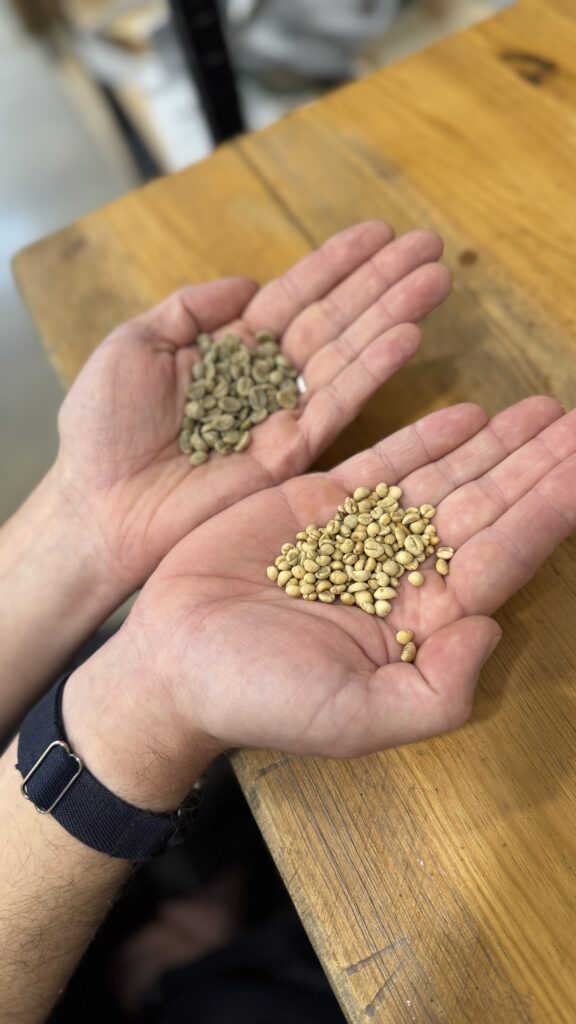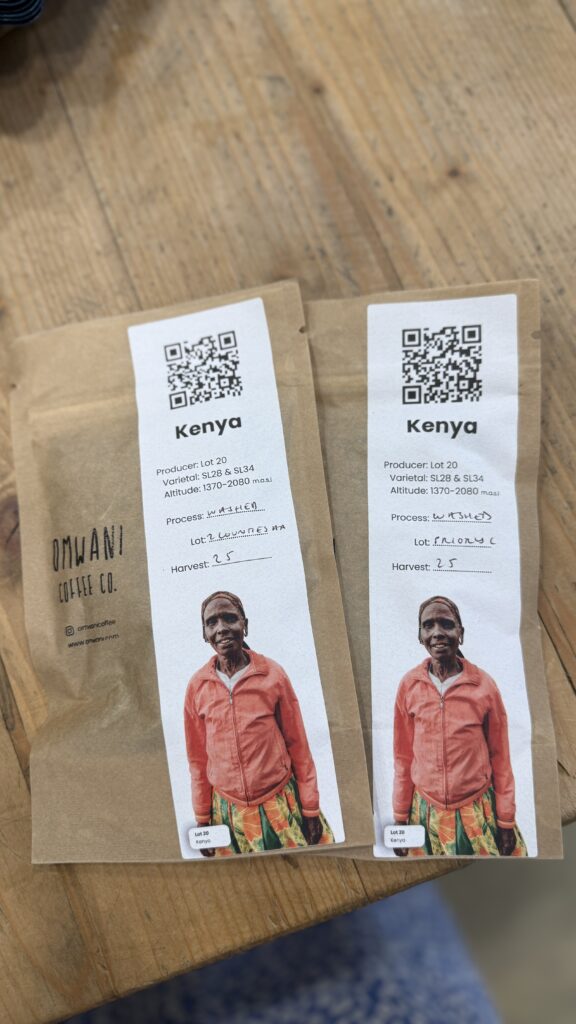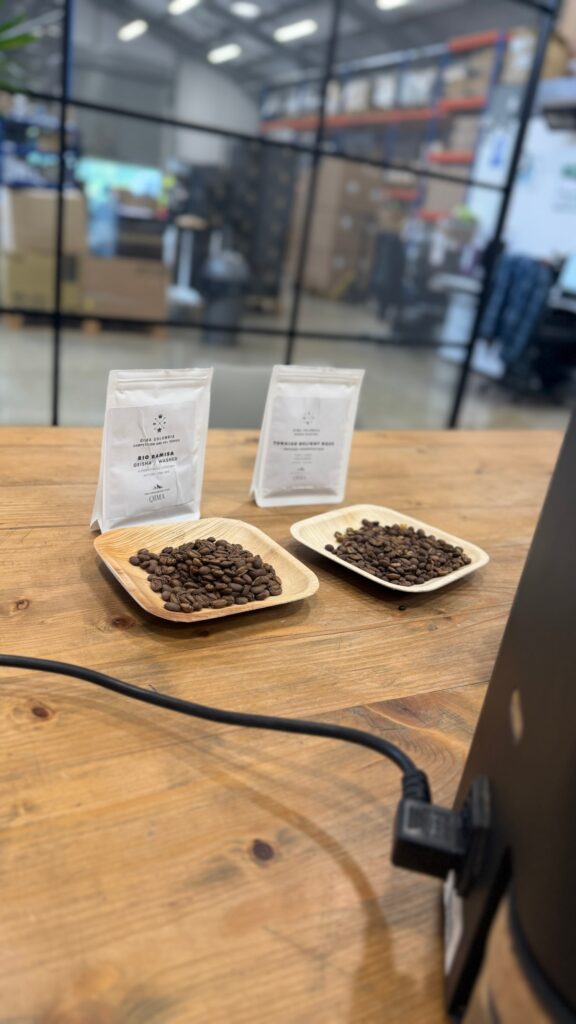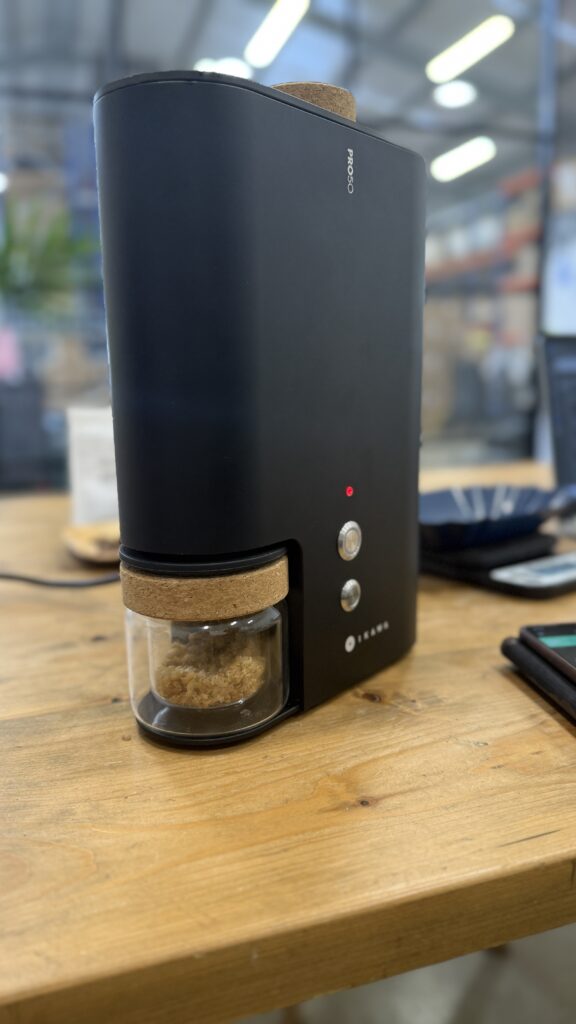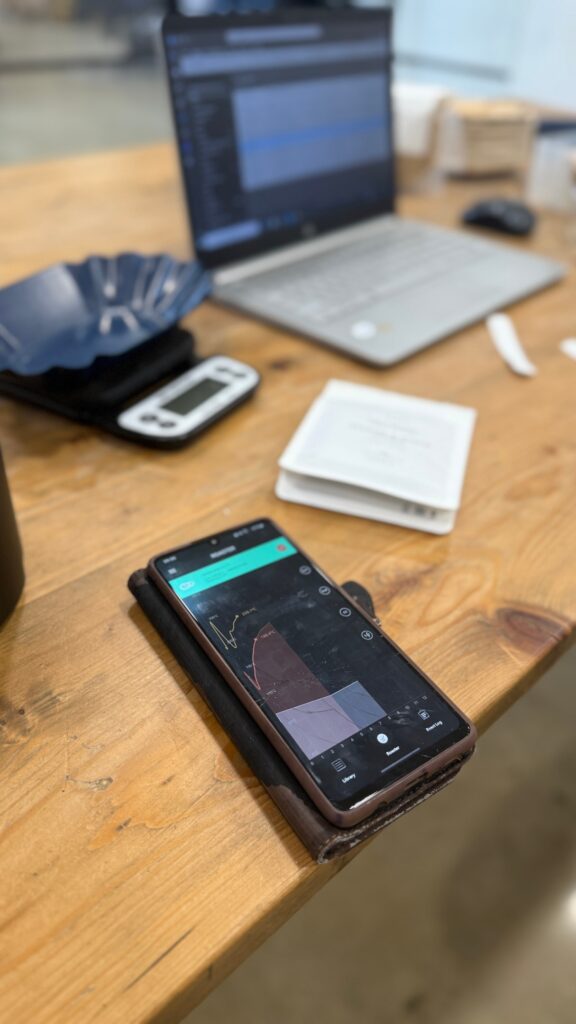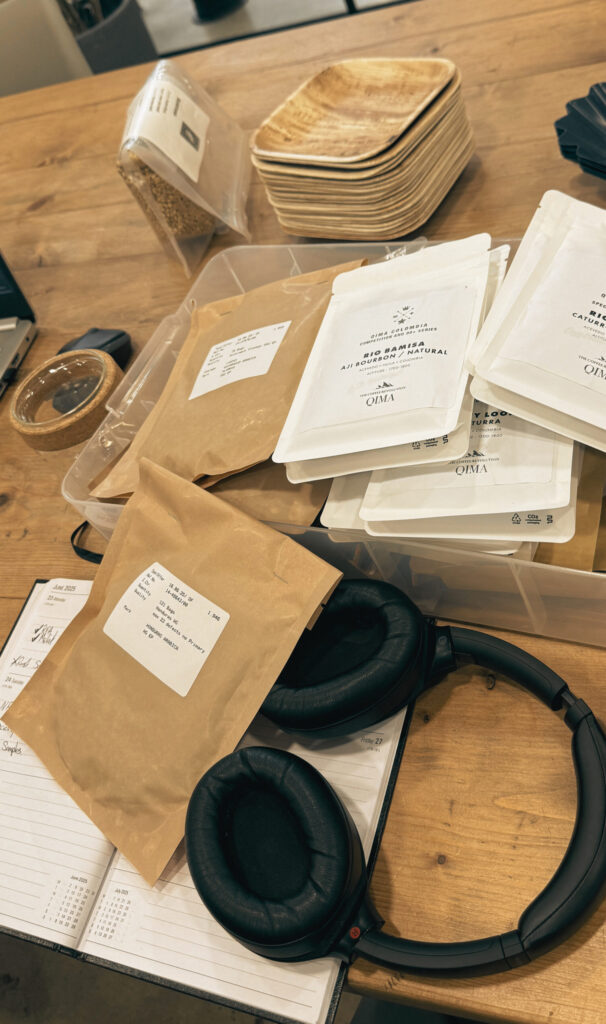You think cupping is where the magic happens? Think again.
Sample roasting is the foundation—the secret script behind every tasting session. It’s the difference between understanding a coffee’s true character and totally misreading it. At Beanworks, it’s one of the most important stages in our sourcing and roasting journey.
If you want to know why we’re so damn serious about it, keep reading.
What Even Is Sample Roasting?
Sample roasting isn’t about producing a delicious cup for retail or your espresso bar. It’s about revealing the unvarnished truth of green coffee beans.
You’re not dialing in for balance or body or customer-friendly sweetness. You’re trying to see what the green coffee really wants to say.
It’s a test. A diagnostic tool. A controlled burn to reveal every detail—good or bad.
The Craft of Getting It Right
Sample roasting is about consistency. Repeatability. Transparency.
Green coffee suppliers send through sample packs, usually 100g at a time. Ideal for a couple of 50g roasts – which is just enough to get a feel for the beans’ potential.
We use carefully calibrated small-batch IKAWA Pro50 sample roaster machines designed for even heat transfer and airflow that mimics our production roasters—but scaled down.
Roast profiles are logged, saved and compared by our in-house wizard, Felix, using IKAWA’s software on his phone: a toolkit of graph lines and curves that lets him experiment with roasts from light to super dark.
He’s looking for:
– First thing to study is the beans themselves! Size, colour, texture etc. How do the samples compare against each other.
– Clean, clear acidity
– Origin character without roasty interference
– SCA referencing
– A balanced development—not baked, not underdeveloped
– Enough solubility to be cupped fairly
We want the truth behind the beans. Nothing hidden. No marketing gloss. Afterall, a 86+ Ethiopia or a 84-point Brazil? That buying call lives or dies on the honesty of our sample roasts.
Sample roasting a washed Yirgacheffe demands a different approach than a natural from Huila. Speciality coffee development needs to stay transparent enough to let those florals or fruity notes sing.
Sample Roasting: The Quiet Flex
When we see Felix taking himself off into the demo room, notebook and headphones under his arm and a haul of sample bags in hand – we know what’s about to go down!
Most people never see this part of coffee. It’s not glamorous. It’s repetitive. But it’s also where a lot of what makes great roasters stand apart happens.
We see it as a craft. A discipline. A promise.
At Beanworks, our team of roasters and green buyers are freakishly obsessed with getting it right. Not because it’s easy. But because coffee deserves it—and so do the people who drink it.
The Psychology of Taste
Here’s where it gets even nerdier—and honestly, more human.
Here’s something people outside the roasting world rarely think about: tasting and cupping isn’t just a technical evaluation. It’s a human one.
Your palate can fool you sometimes. It’s influenced by everything.
-
Mood. Anxious? Tired? Buzzed? You might miss subtle sweetness or mistake clarity for sourness.
-
Environment. Noisy? Distracting? Aromas from lunch floating in the air? Forget it. Your brain can’t isolate the cup.
-
What you ate before. Fatty foods can coat your tongue. Spicy meals wreck sensitivity. Even black coffee changes how you perceive acidity in the next cup.
-
Expectations. Knowing the origin or the price can bias you. You’ll “taste” quality if you expect it—even if it’s not there.
In fact, our Felix is so serious about this he switches to unflavoured toothpaste on cupping days (which is in fact most days). Think that’s overkill? Not when minty residue can warp your perception of acidity or sweetness.
We talk about these things constantly at Beanworks. We don’t see tasting as some mystical “talent” you’re born with. It’s a skill. A discipline. You have to control the variables and train your brain.
Because here’s the truth: you can have the best green coffee in the world, roasted immaculately, and still get the wrong read if you don’t respect how human psychology affects taste.
That’s why sample roasting and cupping at Beanworks isn’t just roasting and slurping—it’s a process of de-biasing ourselves. A fight to taste honestly.
Our brains are easy to fool. If the sample roast is flawed, the cupping results are biased. It’s psychology in action: what you expect, you perceive.
That’s why we roast multiple replicates, blind our tastings, argue about what we’re tasting, and keep egos out of it. We know our palates are tools, but imperfect ones.
Curious about our approach to sourcing and roasting? Chat with our team. We’d love to help you find coffees that sing, or help your business stand out.
Because at the end of the day, we don’t just roast coffee. We study it. We argue about it. We love it. And we think that matters.

